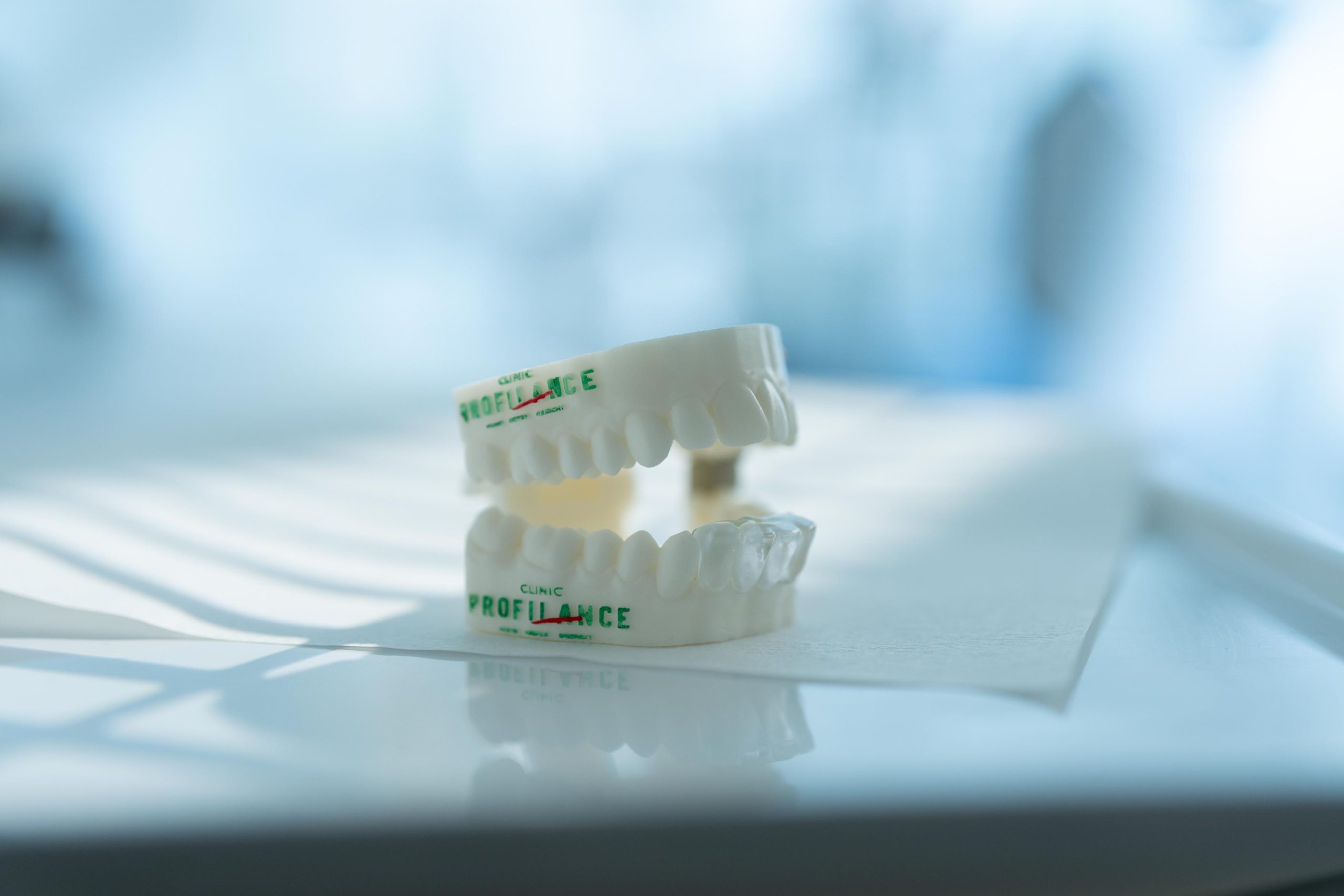Jaw joint complaints
The treatment of jaw joint problems can vary greatly from person to person. It often includes the use of dental splints to minimize incorrect strain, physiotherapy to strengthen and relax the jaw muscles or stress reduction techniques to reduce night-time teeth grinding.
Diverse causes
Temporomandibular joint (TMJ) problems are manifested by symptoms such as pain in the jaw area, clicking or grinding when opening and closing the mouth, difficulty chewing and sometimes limited jaw mobility. Their causes are very different:
- They often result from misalignments of the teeth or jaw, leading to unequal joint stress.
- Stress and anxiety can also exacerbate the problem due to increased teeth grinding or clenching.
- Injuries and arthritis diseases are also among the triggers.
- Muscle dysfunction or tension in the neck and shoulder area sometimes contributes to developing pain in the jaw area.
Careful diagnosis by a specialist is essential for targeted therapy. Treatment for TMJ can vary depending on the cause and severity of the inflammation. Here are some of the most common treatment methods.
Physiotherapeutic measures
Physiotherapy treatments for TMJ problems include manual therapy to loosen and strengthen the jaw muscles, thereby improving joint function. Specific exercises are used to correct misalignments and promote muscle coordination. Relaxation techniques and stress management can also help with stress-related teeth grinding. Therapy is often supplemented with heat or cold therapy to relieve pain and reduce inflammation.
Dental splints
Treating temporomandibular joint problems with dental splints, also known as occlusion splints, aims to correct incorrect temporomandibular joint loading. These splints are individually adjusted to optimize the bite position and relieve the joint. They reduce pressure on the jaw joint and prevent teeth grinding and clenching, which is particularly important at night.
Continuously wearing the splint can lead to a noticeable reduction in pain and increased jaw mobility.

Botox treatments
A more novel treatment for TMJ problems is botox injections. Botox, a muscle relaxant, is explicitly injected into the affected muscle areas to reduce teeth grinding and excessive strain on the jaw joint.
Treating TMJ problems often requires close coordination between the dentist, orthodontist and physiotherapist. In our practice, we attach great importance to a network of specialists with whom we work together in a spirit of trust.
Medical therapy
Nonsteroidal anti-inflammatory drugs (NSAIDs) are used to reduce pain and inflammation.
Injection therapies
Injections of corticosteroid or autologous conditioned plasma (also known as PRP) directly into the jaw joint can reduce inflammation and relieve pain.
Surgical interventions
When conservative methods are insufficient, we perform minimally invasive or open surgical procedures to repair the joint and ensure its long-term health.
All surgical procedures take place in one of our partner clinics in Zurich.



